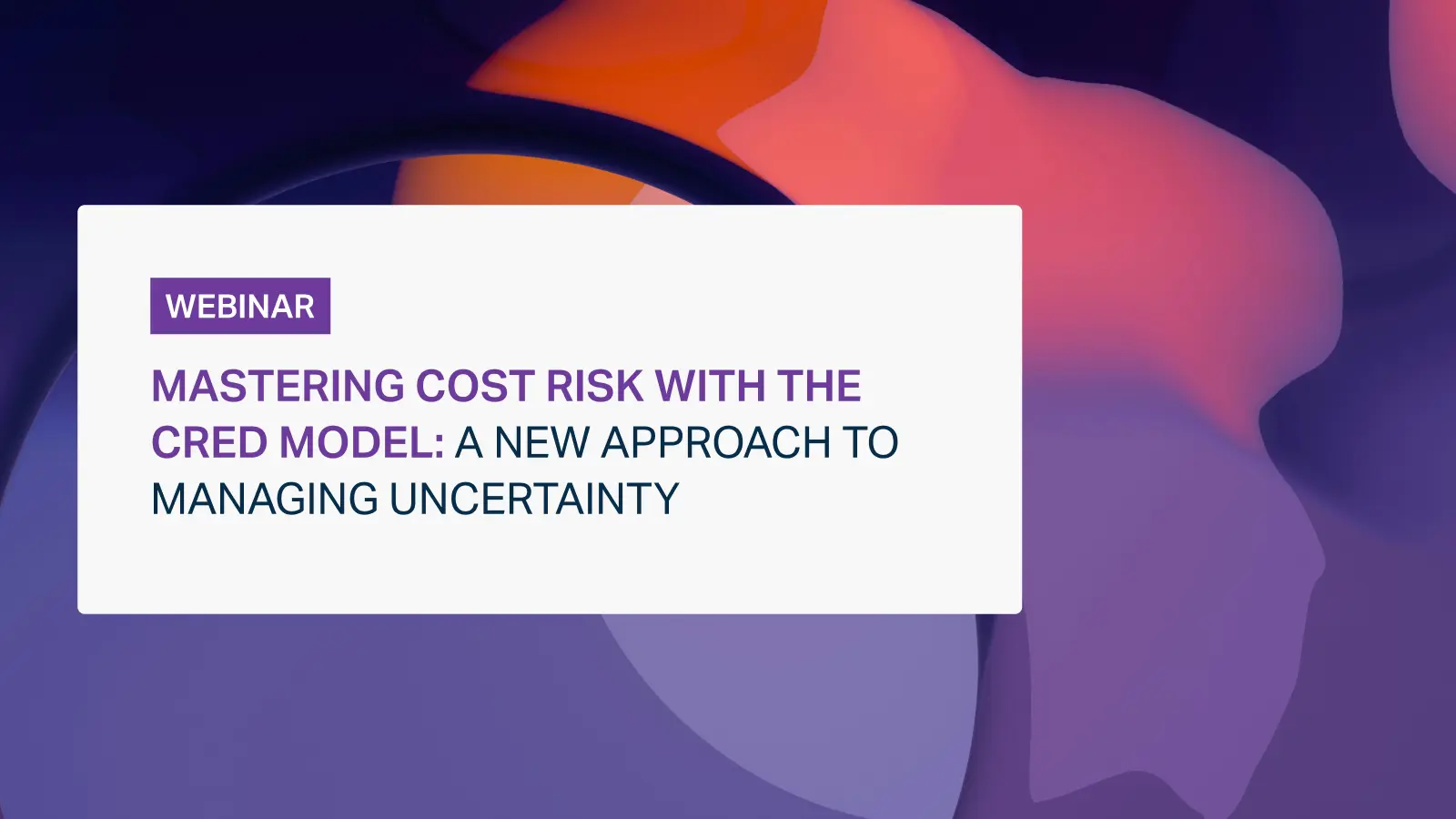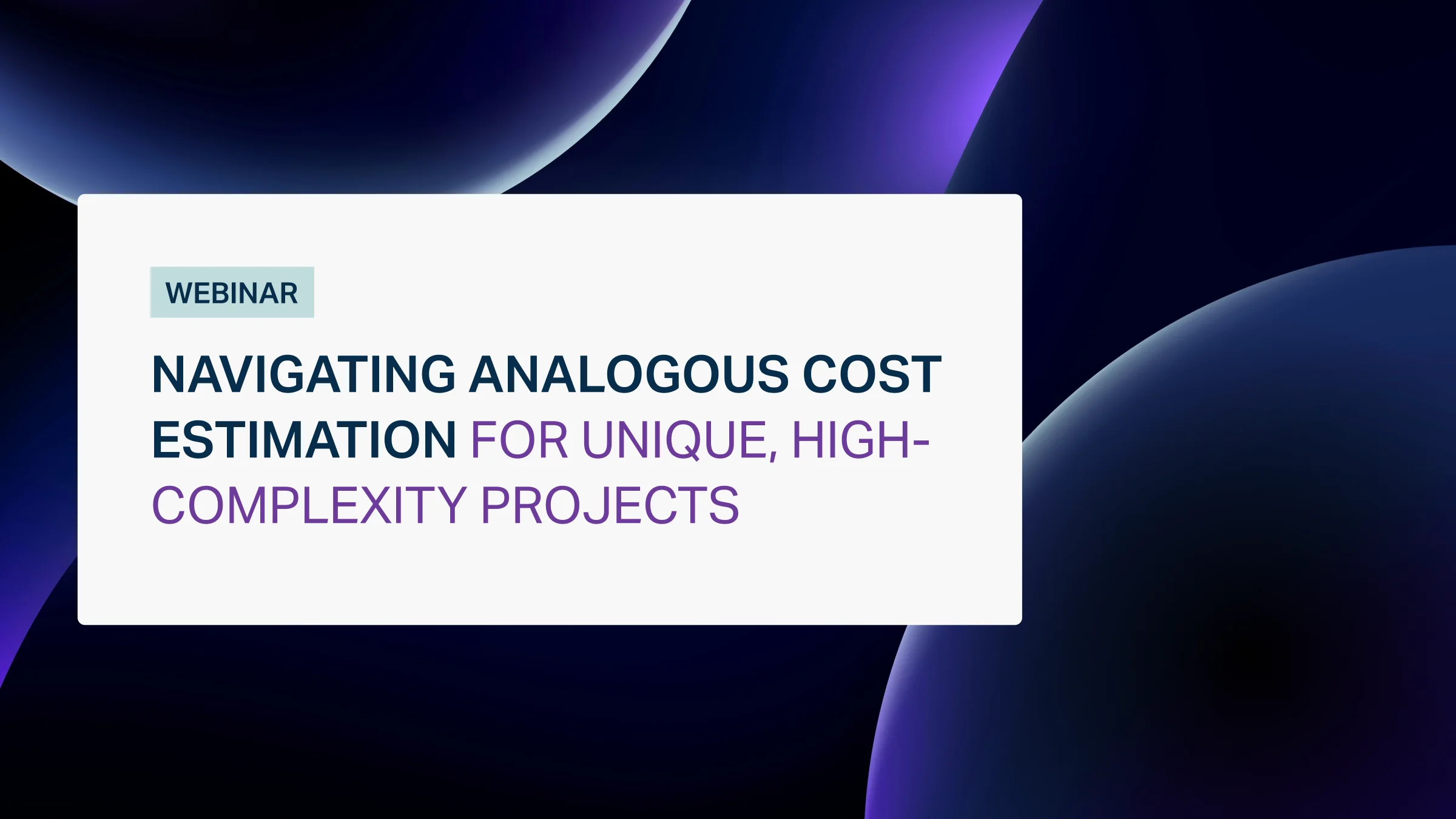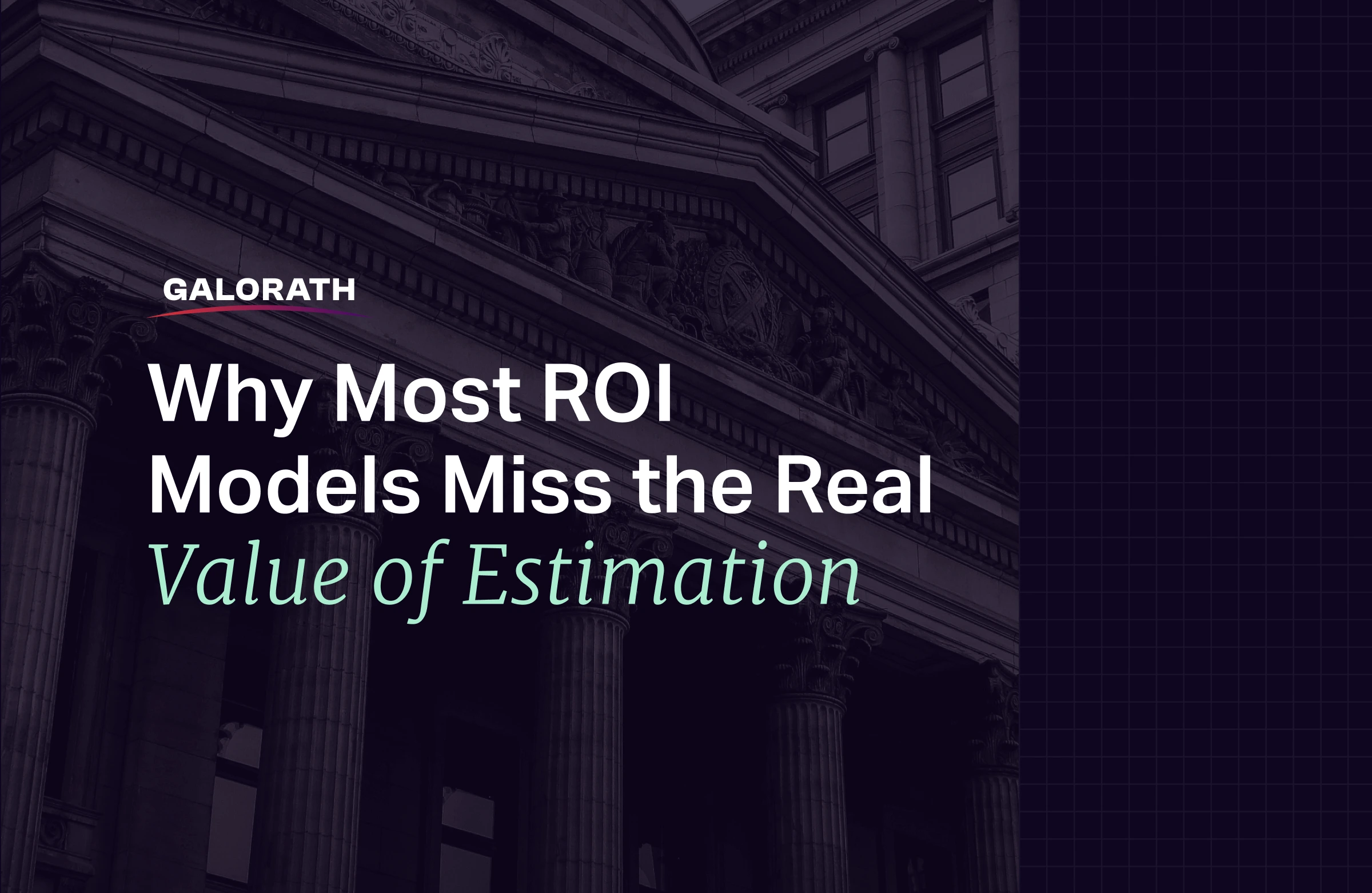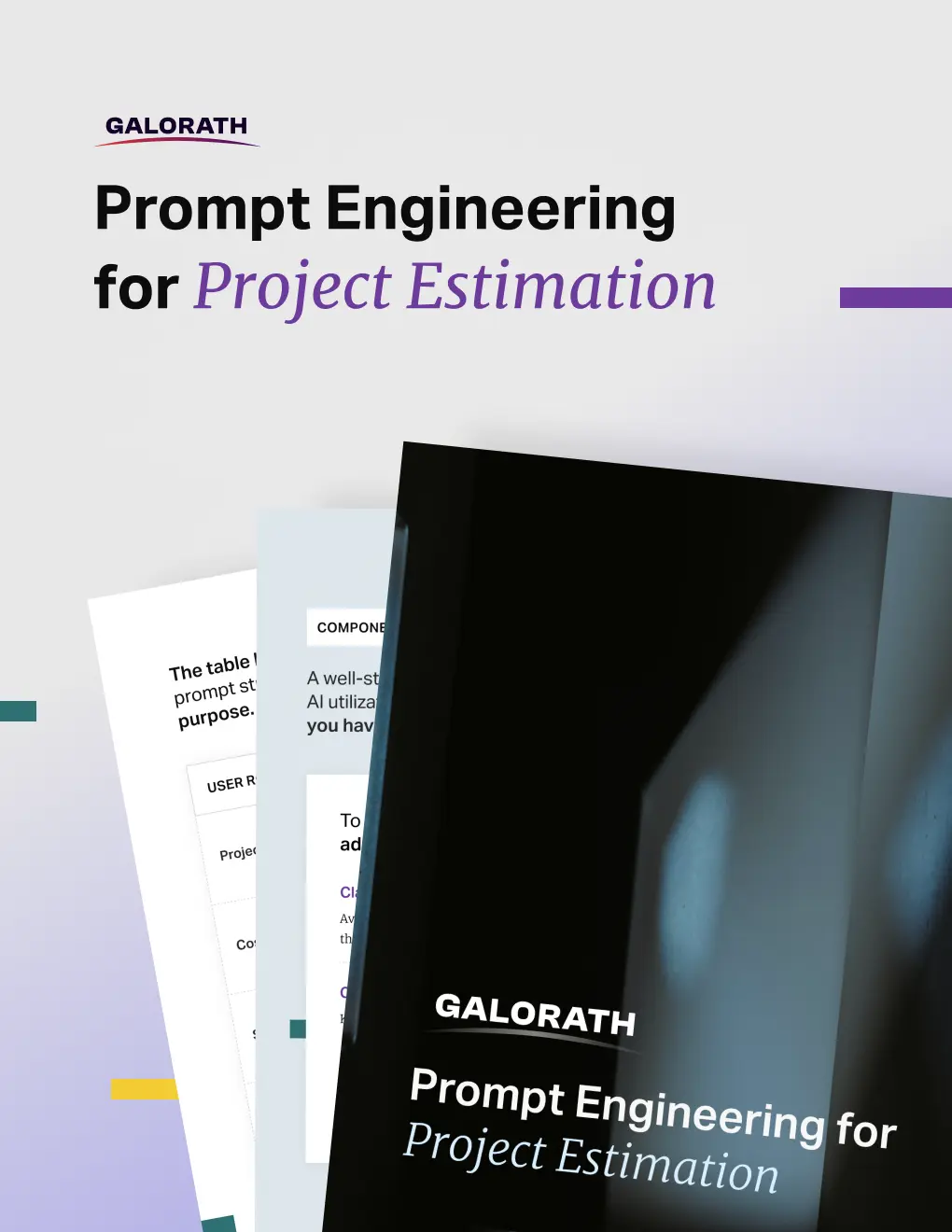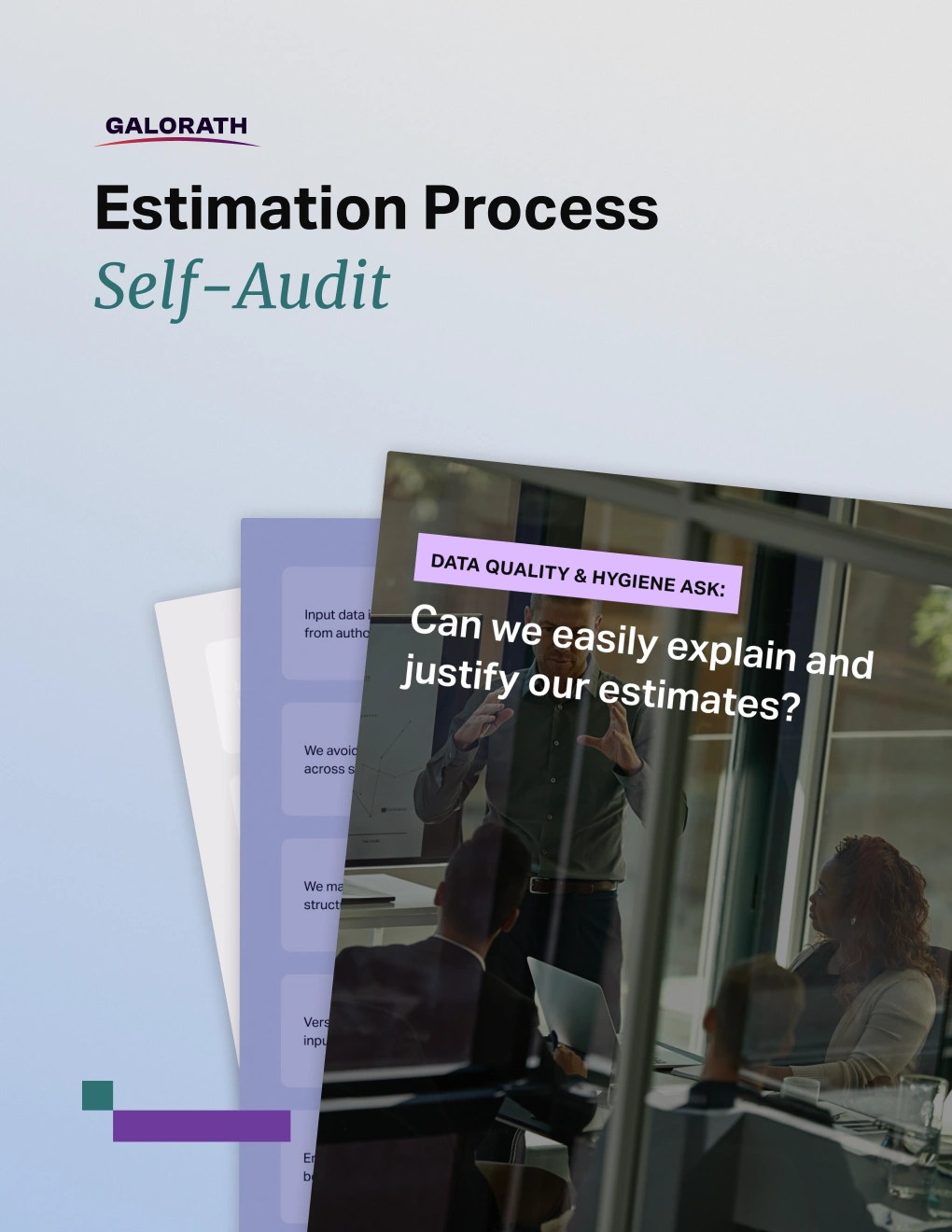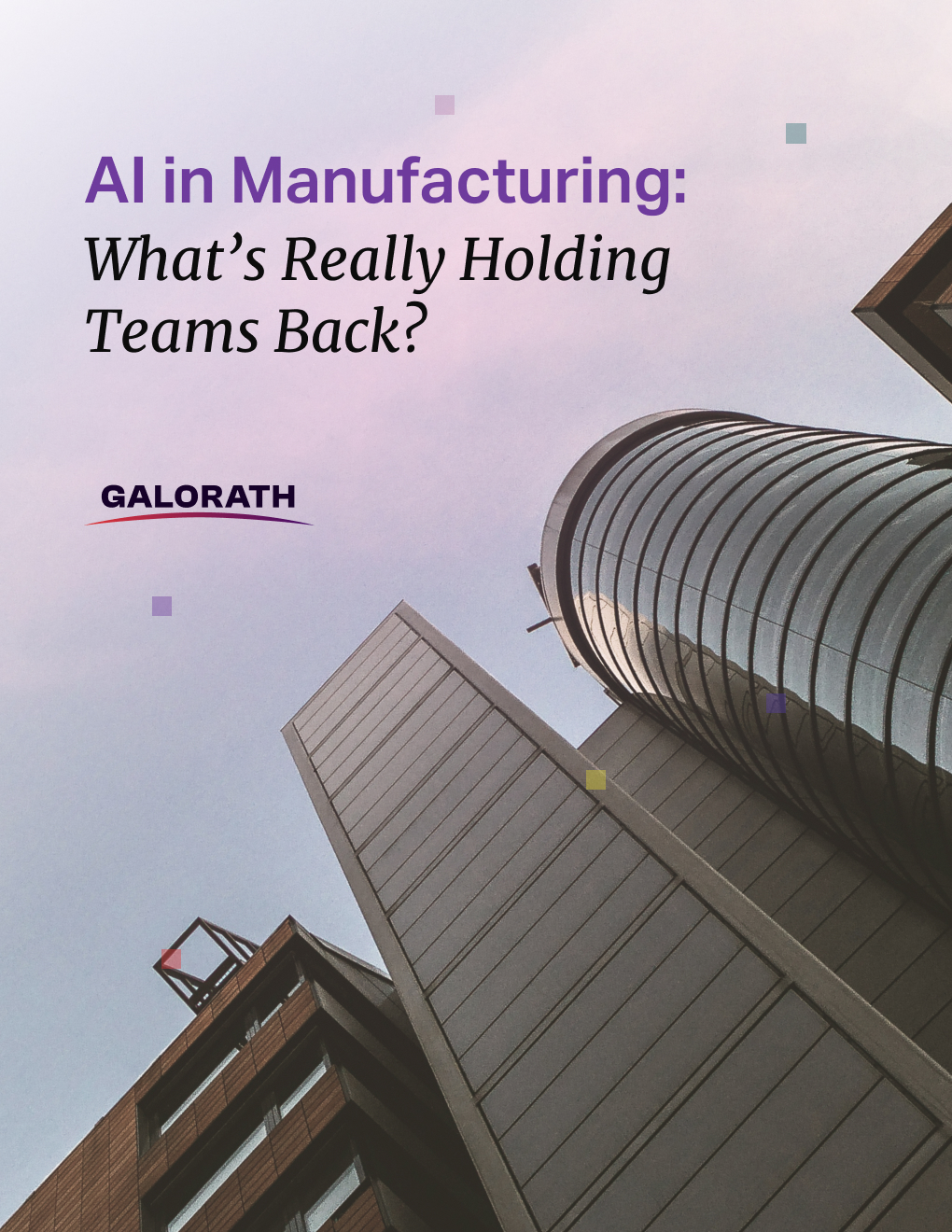Mastering Cost Risk with the CRED Model: A New Approach to Managing Uncertainty
Critical Path Software That Keeps Schedules on Track
Galorath’s critical path analysis software helps teams identify schedule risks, avoid bottlenecks, and prioritize what matters most using agent-powered logic and historical precedent.

Plan with critical path insight early
Delays cascade fast. Know what’s critical, what’s not, and what to re-sequence.
Delays cascade quickly when teams don’t understand the true critical path. Galorath’s critical path analysis tool identifies what tasks drive overall duration, which activities have float, and where risk accumulates. This visibility helps teams plan proactively, not reactively. When you use a structured model instead of manual methods, you gain clarity on where to sequence, compress, or reallocate without building new Gantt charts or reworking estimates by hand.
Replace guesswork with true drivers
Identify which delays actually move the project and which just feel important.
Traditional schedules treat every delay like a crisis, but most don’t affect the end date. Galorath’s critical path method software helps teams focus on what actually drives schedule risk. With SEERai’s agent-supported modeling and SEER’s parametric foundation, you can compare scenarios, run impact tests, and get structured outputs that align with the broader plan. Better visibility leads to better choices, before a minor issue becomes a major slip.
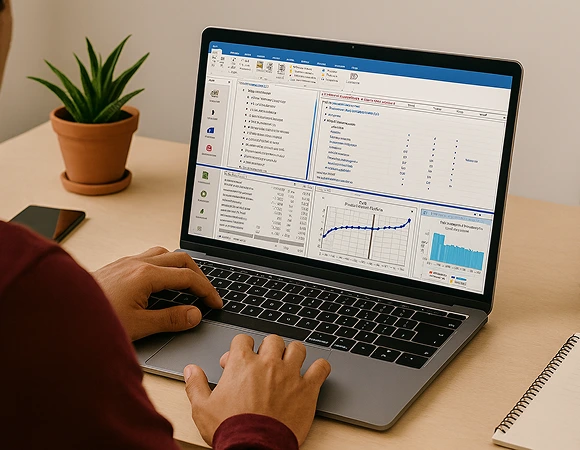
CRITICAL PATH METHOD SOFTWARE
Why Critical Path Analysis Is Key to Project Accuracy
Identify what truly drives duration. Galorath’s critical path software keeps teams focused on what matters most.
Find what drives schedule duration
Replace guesswork with agent-supported outputs that highlight high-impact changes.
Eliminate bottlenecks early
Spot choke points in delivery before they escalate and delay critical milestones.
Prioritize decisions using real logic
Replace guesswork with agent-supported outputs that highlight high-impact changes.
Sequence with confidence
Understand which tasks have float and where resequencing can reduce risk or increase flexibility.
Guide teams with explainable logic
Show why certain tasks are critical with traceable, structured modeling, not black-box rules.
Improve estimates and outcomes
Support better cost and risk estimates with timelines grounded in parametric logic.
CRITICAL PATH METHOD PROGRAM
Project teams need visibility into task order, time risk, and logic before they build the schedule.
Galorath’s critical path method program helps teams visualize project flow, sequence tasks, and assess time-sensitive logic. Using SEER® and SEERai™, analysts can explore alternate paths, identify where float exists, and evaluate what drives total duration. The program provides insight into dependencies, resource timing, and risk impact without needing to recreate the model. When projects have thousands of tasks or shifting constraints, critical path analysis helps simplify decision-making.

CRITICAL PATH TOOL
See how critical path analysis strengthens schedule confidence
SEER and SEERai help teams map task logic, identify critical paths, and model what-if changes without rebuilding the schedule, so you can reduce delivery risk and stay in control.
Software
Use SEER and SEERai to find time risks in software programs early. Model development phases, logic constraints, and float so you can test delivery impact without reworking your plan.
Hardware
Hardware teams rely on SEER to model task interdependencies and run critical path analysis with confidence. Gain clarity on resource timing, duration drivers, and milestone risk.
Systems Engineering
With SEERai’s agent-powered insights and SEER’s structure, systems engineers can test schedule logic, explore alternatives, and keep projects aligned to mission-critical deadlines.
Model Timing Risks and Identify the True Bottlenecks
Galorath’s platform integrates cost and schedule logic to flag critical paths. Project leads can reallocate resources and adjust plans before delays set in.
Explore our Case Studies
SEER Supports Integrated Scheduling for Bell Helicopter
Bell Helicopter used Galorath’s platform to analyze timing and cost simultaneously on the 505 Jet Ranger X. The team adjusted project flow to avoid late-stage blockers.
Read more →“The SEER tools are equally strong at estimating both software and hardware costs. When you use a parametric model like SEER, you reduce uncertainty by deconstructing the project into smaller, well-defined components, the cost estimate of which can be more readily critiqued by the technical and program management staff. SEER is easy [to use] and intuitive.”
Frequently Asked Questions (FAQ)
What is critical path analysis and why does it matter?
Critical path analysis identifies the longest sequence of dependent tasks that determine a project’s minimum completion time. It helps teams prevent delays, allocate resources effectively, and assess schedule risk.
How does SEER support critical path modeling?
SEER uses parametric logic to generate task networks, evaluate float, and calculate risk-weighted delivery timelines. With SEERai, teams can simulate changes instantly and keep schedules aligned with project goals.
Can I use SEERai to run what-if scenarios on the critical path?
Yes. SEERai supports scenario testing so you can adjust timing, task order, or dependencies and immediately see how those changes affect the critical path and delivery confidence.
Visualize and analyze the critical path to identify timing risks and delivery constraints.
SEER helps teams map dependencies, pinpoint schedule risks, and focus on the tasks that determine project duration, all with built-in critical path analysis tools.
Trusted by leaders in the industry:
